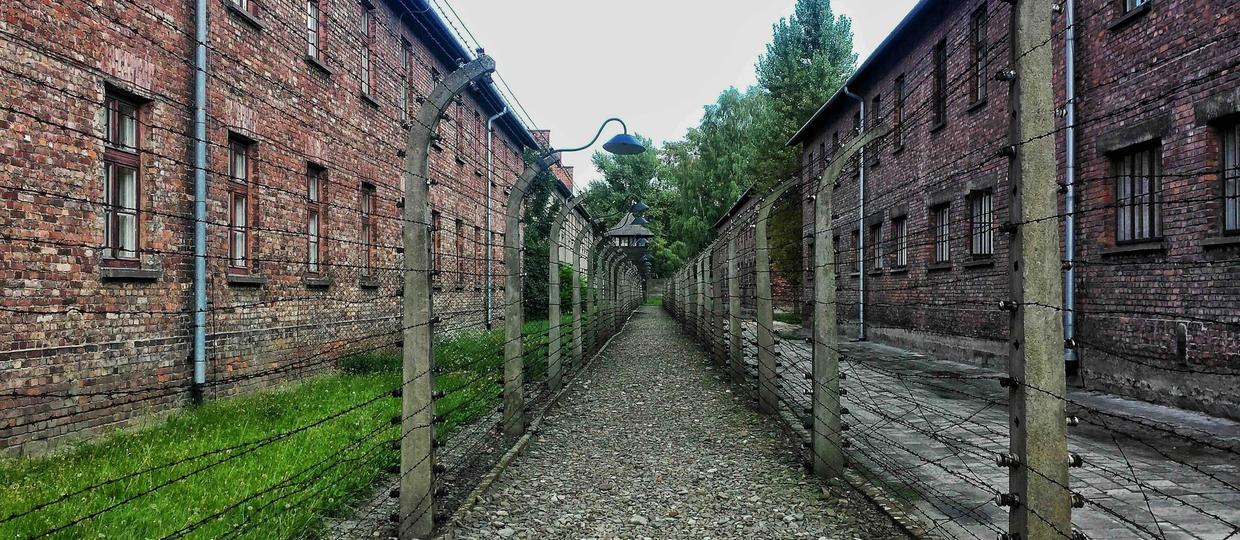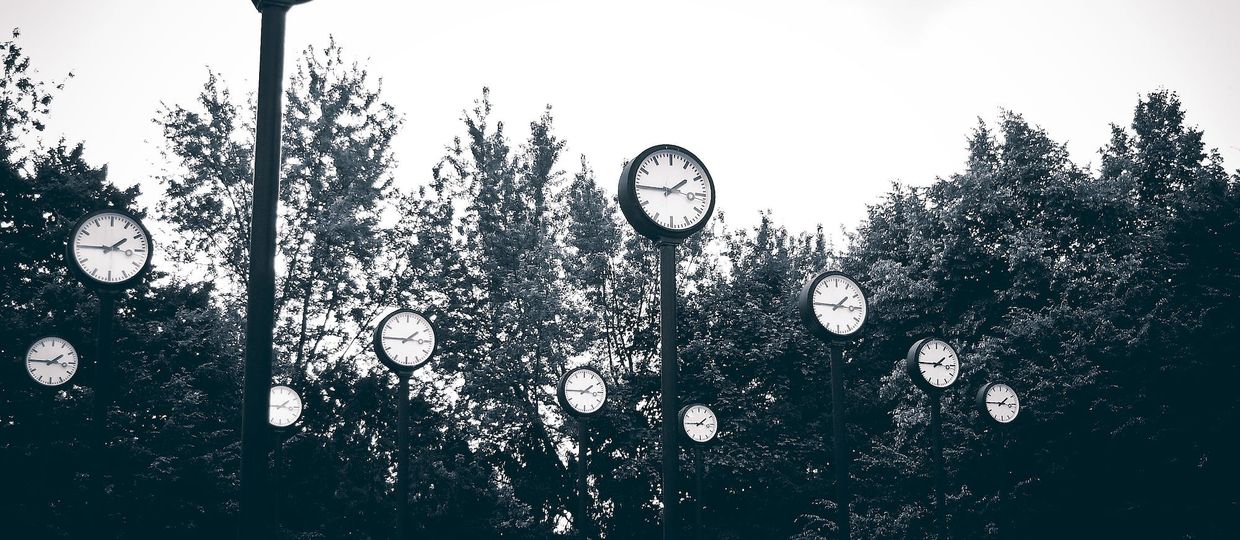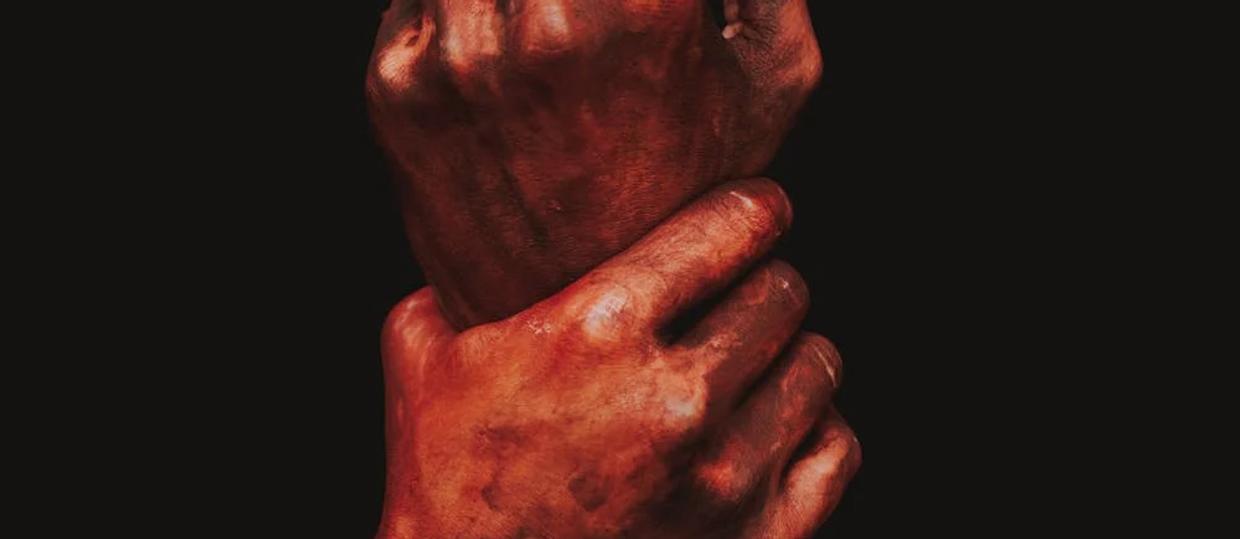Pecan Pie
It is true what they say about time seeming to dilate at the precipice of the unexpected. Imprecise writers often tout this as a manifestation of Einstein’s claim that the passage of time is relative, the proverbial instant of happiness juxtaposed with a seemingly unending boredom.
It took ten seconds for Sasha, our beloved hostess, to say something after April had made it known to everyone that she and Sasha’s boyfriend David were not merely coworkers but were closer than anyone had imagined.
When Sasha spoke her voice was high and unfamiliar.
"Excuse me," she said, standing up from the table. Her hand was covering her mouth, a failed attempt to hold in the sobs which were only getting louder. I looked at April expecting her to do something, anything that would make the situation right again, but she said nothing and only looked down at her plate of mashed potatoes. Sasha too seemed to have been looking towards April for some consolation or explanation, for she did not leave the table immediately. She paused to look at her and with April’s head still bowed, Sasha placed her face in her palms and began swaying from side to side.
Sasha skittered off to the bathroom, and as she closed the door behind her, my eyes drifted not to the other guests nor to April, but to the pecan pie I made for this event, a pie which would now most certainly go uneaten. Weeks ago, my mother had given me the recipe, and I promised I would tell her what my friends thought of it. But that was now probably out of the question.
<><><>
On the morning of the day of this dinner, I had just returned to the apartment I shared with April when she asked me if I “could” take a seat. A ridiculous question under any circumstance, but upon seeing that April’s eyes were still and quiet, I felt compelled to find the nearest chair and sit down. I was on the couch, yards away from a still standing April, with plastic bags awkwardly balancing on my thighs and at my side. Pecans, sugar, corn syrup, and pie crusts. Had I forgotten anything? Was there something I had not seen?
April sat down at the dining room table and she looked at me and I looked at her. Then she looked away and out the window, and my eyes followed her gaze. The sky was cloudless, but its blue was subdued, soft. It really was a beautiful day.
“I’m in love with David.” I think I felt the words before I heard them.
I looked back at her. She was still staring out the window. “What?” I asked.
“David and I have been seeing each other for months,” she added. It was in this second statement that I noted something strange about her tone. She was surely confessing something, but there was no hint of self-reproach, none of the apprehension of an apology, not even the latent defiance of self-righteousness. It was like she was telling me that it will rain today and that I better bring an umbrella.
I was still uselessly holding the bags. Eggs. I had forgotten eggs. How would the pie stay together without them? She looked back at me. ‘Now you say something,’ her eyes seemed to say.
I thought back to when I had first met April. It was years ago, and we were both still graduate students. I was in the Business School’s library and she was sitting a few tables down from me, scribbling furiously in a notepad, immersed deeply in a world no one else could see. I remember marveling at her manifest focus, and her apparent ability to shut out the irrelevant aspects of her environment. It took me a month before I asked her out.
“Did you sleep with him?” I asked.
She turned back to me and her eyes narrowed. “What do you think?”
OK, I at last admitted to myself, this is happening. I looked around the room, bare except for a couch, a dining room table, and a TV we never watched. The truth: Things with us had gotten dry. I was teaching Statistical Mechanics and Mathematical Methods courses this semester, and I spent most nights in the office, even sometimes when I didn’t have to. We had been living together for half a year, and I was not handling domesticity well. I still wanted my own space. At some point, April’s texts of “Chicken or steak?” and “When will you be home?” were replaced with “I’ll be staying late tonight,” and “I’ll be at my sister’s this weekend.” Of course, I suspected something. April worked for, and spent most of her time at the office with, David, but I had told myself nothing could happen between them. I mean April, a despiser of all things cliché, could surely never become the secretary who sleeps with her boss.
As I looked at April, I considered whether to mention all the obvious elephants. David was dating Sasha. Sasha was supposedly April’s best friend. We were going to David and Sasha’s Thanksgiving dinner in a few hours.
April stood up. This talk was apparently over. As was our relationship. “I’m telling you now, just so you know why I can’t come visit your family this weekend,” she said. “But I don’t want Sasha to know yet, especially not today. I don’t want to ruin her Thanksgiving.”
Implicit in April’s words were instructions: I won’t say anything to Sasha, so you’re not going to say anything to Sasha. Revenge should have been on my mind, but the entire conversation had stunned me into complicity. I nodded my head, and April, satisfied, went to our room and closed the door. I sat on the couch and breathed in and out, then I released the bags in my hands and went out to buy eggs.
As it turned out, I didn’t need to say anything to Sasha because April told her anyway. At the dinner, we had just finished the main course, and dessert was about to be served when a guest concluded a description of her brother’s new tattoo by pronouncing that she could never imagine getting one. Mostly everyone agreed, but Sasha, with mischief in her eyes, quietly mentioned that David had two tattoos. David was away visiting family, so he couldn’t confirm or deny this claim. But when the guest expressed disbelief, April, so perpetually and unnervingly restrained, experienced what I can only call a lapse. She said it was true, and that David had a star on each inner thigh. It took me a second to understand what had just happened, but Sasha, her mouth open, seemed to have realized it instantly. She knew the answer before I had even intuited the question. How would April know that David had a tattoo on each thigh unless she had also seen what was in between?
By now Sasha had been in the bathroom for five minutes. We could all hear her sobs from down the hall. I heard someone’s chair scrape back. Someone was at last doing something, but that someone was sitting next to me. I looked up to see April standing and looking towards the bathroom.
“What are you doing?” I asked her. She began walking around the table, and I stood up to follow her. I grabbed her wrist before she could get too far away. It was the first time I had touched her in a month.
“I think you’ve done enough,” I said to her. She turned around in an expression of genuine bafflement.
“She needs me right now.” Was she kidding? I looked into her eyes to check whether the sincerity I heard in her words was also in her face. Seeing it clearly and brightly there, I suppressed a chuckle. “I am quite sure you’re the last person she needs ‘right now’.”
At this, April wrested her arm from my grip and squared herself in front of me. I sighed, trying to regain something which looked like composure. I walked to the coat rack and lifted off my jacket. “I think we’ve overstayed our welcome. Let me take you home.”
April folded her arms as if positioning herself for an attack.
“I’ll take a cab,” she said, which I felt was code for “Please, go fuck yourself.” I clenched and opened my hands. At my back, I felt the pressure of many eyes.
“Fine,” I said, “Do whatever the hell you want.”
I walked to the door, and the moment I opened it I realized I was forgetting something. I looked at the dinner table. The pie I made for this evening lay untouched next to the carved turkey. That morning, when I returned home from my second trip to the grocery store, I found the apartment empty. On the table, there was a note. “Out for a walk—April.” I thought about the pie. April had promised me we would make it together, but she was gone. I had waited for fifteen minutes, then started without her. Making the pie had been an ordeal. Even with my mother’s explicitly written recipe, I still messed up the filling once and had to make the entire thing again. April returned hours later, with an hour remaining until the dinner, and the pie was lying there on the table, but she said nothing about it.
In Sasha’s eyes, April and I were what we had not, in reality, been for many months: a couple. So the pie would seem like a gift from both me and the best friend who had been sleeping with her boyfriend. Assuredly, Sasha would throw the pie away. I did not like this idea. I walked back to the table and picked it up.
“I’m taking this,” I said to no one in particular and walked through the open door, closing it behind me.
<><><>
I left Sasha and David’s place and started on the route which led to the subway. But I didn’t want to face the crush of people, the cloistered unkempt spaces of the underground. And the day was still beautiful. I began walking to the esplanade which went on for two miles along the edge of the river in the direction of my apartment. The sun was setting and there were families taking walks with dogs and runners huffing down the path.
I looked closely at the pie cradled in my hands. It was my first attempt at implementing my mother’s recipe. I had spent years failing to visit my childhood home, missing Thanksgiving after Thanksgiving due to work, when my mother finally told me that if I wasn’t going to be able to eat her pecan pie, I should at least try to make it myself. The result looked reasonable enough for a first effort, but it also didn’t look like my mother’s. I hadn’t even tasted it yet because I was saving it for tonight’s dinner.
I transferred the pie to one hand and patted myself down, finding nothing. What did I expect? Who carries plastic forks as a daily accessory anyway? I hesitated for a moment and then stuck three fingers into the pie and pulled out a clump of pecans and filling. I lifted it above my head and lowered it into my mouth. To my surprise, it was delicious. I quickly ate another clump and another. It was quite possibly better than any I had eaten while growing up. I decided the nutty sweetness of the filling almost quelled the disappointment of the day.
Thoughts of April wandered into my mind, and I stopped walking and looked up. The sky, previously so bright and clear, had become a murky reflection of the colored leaves scattered across the road. But I hadn’t stopped for more than a few seconds before I was shoved from behind. My hands launched up and the pie flew from my grasp. It sailed overhead, and my mind suddenly realized this was a two-dimensional projectile motion problem. Given an estimate of both the angle of launch and the pie’s initial speed, I would be able to calculate how fast I would need to run to catch the pie before it hit the ground. But I did not have time to think because the force that shoved me followed through, and I went to the ground seconds before the pie did.
It is true what they say about time seeming to dilate at the precipice of the unexpected. Imprecise writers often tout this as a manifestation of Einstein’s claim that the passage of time is relative, the proverbial instant of happiness juxtaposed with a seemingly unending boredom, both in reality constituting only a few seconds. Of course, this is not so. Relativity claims that the passage of time can indeed be different in different coordinate systems, but this difference has nothing at all to do with perception. The deceleration of time at the moment of a catastrophe, however, is all perception, and as such has nothing at all to do with relativity.
Instead, I have my own hypothesis for why time seems to slow at such moments. Your mind, trying to process how you came so suddenly to such a strange place at a strange time, patiently moves through the seconds, poring over each possibly relevant detail until it reaches an understanding that could never have been developed in the time typically allotted to mundane events. Still, even with time’s deceleration, you all too quickly find yourself at the conclusion of the incident, feeling explicitly what you have always felt implicitly, that you are merely a bystander to a life that is not your own.
After the tackle, I was on my hands and knees. Around me, I heard labored breaths and the soft stampede of many feet. I looked up and around to see about a dozen runners jogging away, down the path. I vaguely noted that after my fall some of them had run around me and others had hurdled over my back. Looking to the front I saw a shirtless man in shorts which were too high and sneakers which were too bright jogging backwards as he looked with scorn upon the pie scattered on the concrete.
My assailant.
"Next time stay off the running path!" he yelled as he turned around and sprinted after his group.
Now, I would like to say that I made a retort so witty and biting that the runner stopped in his tracks and wept quietly to himself as he contemplated his hamster-like existence. I would like to say that I got up and ran after this lanky charlatan of a human being and picked him up and threw him from the edge of the river. I would like to say these things because they make me sound strong, confident, and completely over what happened that day and because they are less shameful than the truth.
In truth, I thought about April and I began to cry. Sobs made all the more uncontrollable by the fact that I did not believe they were happening. When April told me the news of her relationship with David that morning, I told myself I didn’t really care. I believed I had moved on instantly, and to me, this was a sign of maturity and control. Yet here I was, prostrate on the blacktop, shedding tears that were hours, perhaps months, too late to mean anything to anybody.
I looked upon the disassembled pie a few feet in front of me, a pie which hours before was whole and waiting on Sasha’s table to be eaten amongst strangers masquerading as good company, and hours before that merely consisted of a disparate collection of ingredients picked up during the early operating hours at Trader Joe’s. It took minutes to right myself and stand up. I brushed the gravel from my pants and hands, and I looked at the pie again. In the back of my mind, I heard a voice—most likely my mother’s—telling me I should clean up the mess I made.



